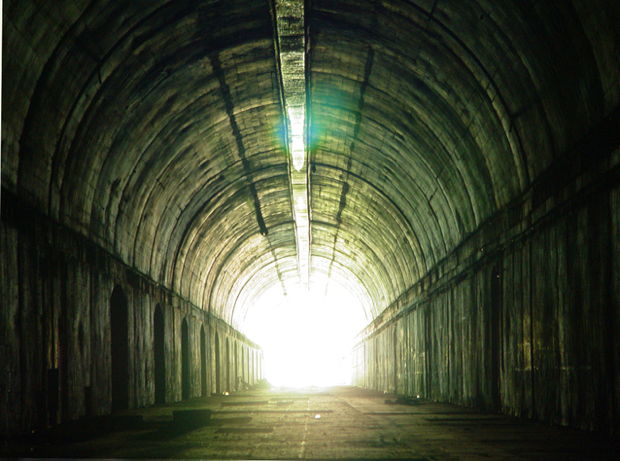
Sometimes in academia I have tunnel vision. I get grant proposals turned in and dissertation chapters written, but there’s not much room for coffee dates with friends or baking snickerdoodles. Life is necessarily busy. As my husband puts it, for the last year I’ve been on dissertation probation.
We academics also hit seasons when we get to (even have to) walk out of the tunnel and remember what else is going on. Summers, graduations, and job changes all offer opportunities to come out of the tunnel. Coming out of the tunnel is like spending the day cooped up in a library and then walking outside at 5:00 to find the sun shining and the birds singing. You think, “Why didn’t I do this sooner?” The answer is, “Because I had a deadline!” Yet you suddenly remember that academic work is not the only thing.
Those walks out of the tunnel often leave me in a strange funk. Suddenly there’s no single dominating task demanding all my energy. I have to choose what to do? I’m supposed to be instead of just do? I find myself worrying that I’m wasting time, even as I worry that I’m not sufficiently savoring all the summery goodness.
During one week this spring, I graduated with a PhD, completed my first year as faculty commuting two hours away, and even managed to make it to two kid concerts, host three parties, and wage war on a squirrel that moved in under our bathtub. And then I walked out of the tunnel.
Even if you didn’t just finish a dissertation, for most of us in academia, summer brings a little slow-down. How do we make the most of these months — setting aside time for deep rejuvenation and also setting reasonable goals so we don’t feel like guilty sloths at the end of the summer?
Do the least urgent thing.
There are always a couple things on my to-do list that never get done. There’s that friend I’ve meant to call, the thistles to dig out, and the files to reorganize. Plunging into that last item on your to-do list first signals to the depths of your psyche that you are free and God made enough time.
Get some geographic space.
Start the season with a retreat, preferably outside your normal geographic stomping grounds. It doesn’t have to be complicated. Ask somebody with a beautiful house to borrow their living room for a day, or visit a nature preserve, church, or monastery. Physical distance helps our brains gain perspective as we ask questions like, “What’s working in my life?” and “What’s Christ inviting me into next?”
Ask an elder.
For the last month of the school year, I’ve been keeping a list of people to see when I graduate. Most are spiritual elder types — people with years of wisdom tucked away just waiting to be shared. Ask them what kind of rhythms they follow in their spiritual walks. Try this question: “What two things would you recommend finding time for every single week?”
Make a rhythm.
Anthropologists know that rituals are powerful — they pull us into an experiential and emotional connection with truth even when we don’t have the words to say or don’t feel like caring. Summer is a great time to start a new ritual or pick up a habit that slid away in the hectic months of winter. Two of my new summer habits are to write down a new thing I learn each day and to take daily walks.
Read outside your discipline.
Remember the feeling of just reading something fascinating — not needing to take notes or enter the copyright year into a bibliography? That kind of reading sparks new projects, new hope, and new energy. This summer I’m enjoying a few classics I should have finished in grad school but never did, plus some biology, philosophy, and economics. Maybe they’ll fit into future classes I teach or papers I write, maybe not, and it doesn’t even matter. Re-experience the joy of learning without having to produce.
Make something beautiful.
Remember the purpose of all that academic writing? It’s to make something beautiful, good for humanity, and pleasing to God. If you’ve forgotten what that feels like, you’re not alone. Try experimenting in a medium where you’ll feel free from judgment and pressure. A friend gave me a set of colored pencils for graduation, and I spent a morning with my daughter on a lakeshore drawing honeysuckle flowers. This I will not regret.
What else will you do this summer that you will not regret? As Eugene Peterson writes, we need roadside vistas:
We can’t always be driving, watching the road closely. Not driving is also part of the trip — savoring what we’ve done, absorbing the landscape, letting the contours of the land and the colors of the horizon sink into our imaginations. These are connective moments....Honoring them is one of the ways we have of keeping our lives coherent — keeping what we’ve been connected with what we’re becoming (Leap Over a Wall, 137.)
I know someone who went straight from the dissertation defense to buy a video game console and then played games for a week straight. Maybe that’s your way of unwinding. Whatever your way of getting out of the tunnel is, take it.